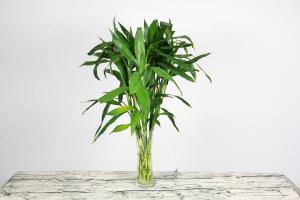Introduction
Plants are crucial to the environment as they produce oxygen and provide food for both animals and humans. The growth of plants is affected by various factors, including water, sunlight, soil, and nutrients. However, many factors can negatively impact plant growth, such as salt in water. In this science fair project, we will explore how saltwater affects plant growth.
Hypothesis
Based on prior research, our hypothesis is that saltwater will have a negative impact on plant growth, as it might end up increasing the soil's salinity, which might impact the roots' ability to absorb water and nutrients. Besides, many plants are not evolved to tolerate salt concentration present in seawater, and high salt levels in water will increase salt toxicity in the plant tissues.
Materials and Methods
The following materials will be needed for this project:
- Small pots
- Plant seeds (preferably fast-growing flowering plants, like marigold)
- Soil
- Saltwater (made by dissolving salt in tap water)
- Freshwater (tap water)
- Measuring cup
- Ruler
- Plastic wrap
1. Fill the pots with soil up to 3/4th of their capacity.
2. Plant the seeds according to their directions at a depth that is twice the width of each seed.
3. Add one cup of saltwater to one pot and one cup of freshwater to another pot to keep them moist.
4. Cover each pot with plastic wrap and place them in a location that receives consistent light and temperature.
5. Water the plants with saltwater and freshwater as per the requirements over a period of one month.
6. Observe the plants daily and record their growth by measuring their height and width with a ruler.
Results
After one month, we observed that the plants grown in freshwater grew taller and wider compared to those grown in saltwater. The saltwater plants showed much less growth, and some appeared to be wilting. The leaves of the plants grown in saltwater also had visible signs of salt accumulation, such as yellow tips and brown spots.
Discussion
The results of the experiment confirm our hypothesis that saltwater has a negative impact on plant growth. This is because salt in water increases soil salinity, which alters the osmotic potential of the soil solution. Thus the roots of the plant find it difficult to absorb water from the soil, leading to reduced plant growth. Additionally, many plants are not adapted to tolerate seawater's high salt concentration and will suffer salt’s toxic effects.
The presence of salt in the soil can affect plants in other ways also. For example, sodium can replace other essential nutrients like potassium and calcium, making plants deficient in these nutrients. Besides, excessive salt accumulation can kill beneficial microorganisms responsible for maintaining soil health.
Conclusion
Our experiment demonstrates that saltwater has a negative impact on plant growth. Thus, it is essential to monitor the salt concentration in the water or soil in the field, especially where agriculture is monsoonal or coastal or where irrigation-water salinity levels are high. By using freshwater, we can ensure the optimum growth of plants and contribute to maintaining a healthy environmental balance.

 how many times do yo...
how many times do yo... how many planted tre...
how many planted tre... how many pine trees ...
how many pine trees ... how many pecan trees...
how many pecan trees... how many plants comp...
how many plants comp... how many plants can ...
how many plants can ... how many plants and ...
how many plants and ... how many pepper plan...
how many pepper plan...































